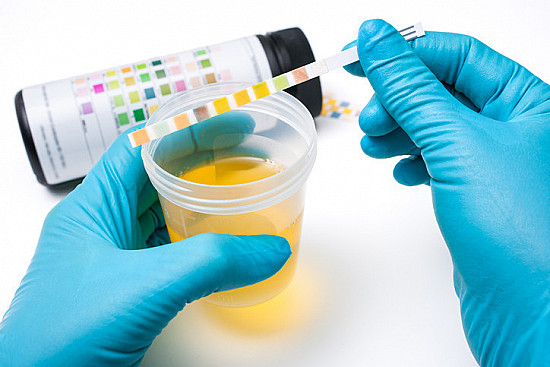What can I do about my "dribbling"?
On call

Q. No matter how much I shake and dance, I can't stop the last drop from ending up in my pants. Why is dribbling after urinating a problem in older men?
A. First off, you are correct that "dribbling," medically known as post-micturition dribbling (PMD), is indeed a common phenomenon, especially as men age. The International Continence Society defines PMD as the involuntary leakage of urine after a person feels like he has stopped urinating and the bladder has emptied.
Urologists divide PMD into primary and secondary types. Secondary PMD means that the dribbling is a side effect of a surgical procedure on the prostate, bladder, or urethra. With primary PMD, there can be numerous factors likely contributing to dribbling.
PMD occurs when residual urine collects in the bulbar urethra. The urethra is the tube that carries urine from the bladder through the penis. The bulbar portion is at the back of the penis, close to the prostate gland. Why urine tends to remain in that section is not entirely clear.
The leading theory suggests that the problem is related to a weakening of the pelvic floor musculature that happens naturally with aging. In younger men, fully functioning pelvic floor muscles contract to push out urine from the bulbar urethra as urination ends. In older men, even those who are fit, these muscles easily lose their power.
The simplest immediate therapy is to manually "milk out" the residual urine in the bulbar urethra. Place two or three fingers of one hand an inch behind your scrotum. Gently press upward. Keep applying this pressure as you move your fingers toward the base of the penis under the scrotum. This should move the pooled urine further down the urethra and then out of the penis. Then, shake out the last remaining drops.
In addition, consider learning how to do exercises to strengthen your pelvic floor muscles. It's best to have at least one session with a physical therapist to ensure you do these properly. To prevent further weakening of those muscles, it also helps to lose weight if needed, quit smoking to avoid a smoker's cough, not strain when moving your bowels, and limit heavy lifting.
Dribbling also could be related to an enlarged prostate, known as benign prostatic hyperplasia, or BPH. Therefore, you may want to get checked by your doctor. Treating that condition may reduce the dribbling in addition to helping other BPH symptoms, such as bladder control, incontinence, and frequent urination.
Image: © Tim Graham/Getty Images
About the Author

Howard E. LeWine, MD, Chief Medical Editor, Harvard Health Publishing; Editorial Advisory Board Member, Harvard Health Publishing
Disclaimer:
As a service to our readers, Harvard Health Publishing provides access to our library of archived content. Please note the date of last review or update on all articles.
No content on this site, regardless of date, should ever be used as a substitute for direct medical advice from your doctor or other qualified clinician.















